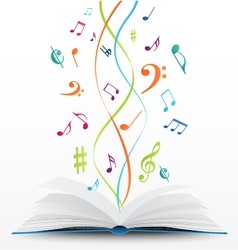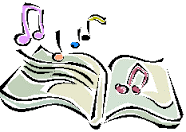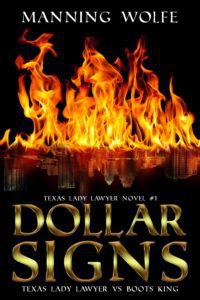 Song Lyrics: Using Them in Books by Manning Wolfe (click for comments)
Song Lyrics: Using Them in Books by Manning Wolfe (click for comments)
Writers often include music references in their manuscripts to establish a mood or setting without consideration of the legal issues surrounding their use. Song lyrics are copyrighted, just like books. And, like books, the copyright is created the minute the tune is written, even prior to registration.
When I give my Legal Issues for Authors presentation, use of song lyrics is the number one area of discussion and chagrin at my response to questions. I often hear: “It’s just one line;” or “I’m not planning to sell that many books, how would they know?” I respond: “Even one line is protected by the song writer’s copyright;” and “What if your book is a big hit and the music company holding the rights decides to enforce it?” It’s a vulnerable position to be in. I remind attendees that the same laws that protect their books from being pirated are the laws that protect a song writer’s lyrics.
Fair use: Even if an author squeezes in under the fair use statute (which is very limited for use in commentary, education, or parody), defending that position in a lawsuit may cost more than the book revenues.
Permission: If an author is determined to use particular song lyrics, permission can be obtained by  sending a request to the music publisher and paying a fee. The cost may be higher than revenues from the sales of the books, and the process can be slow and frustrating.
sending a request to the music publisher and paying a fee. The cost may be higher than revenues from the sales of the books, and the process can be slow and frustrating.
Titles in Lieu of Lyrics: In my own writing, I try to find a way to get the same effect from the song lyrics I’ve quoted without using the actual lyrics. Most of the time, I use the song title and the artist’s name, which is acceptable under copyright statutes. For example, if I’ve written:
Boots drove along the highway singing (lyrics omitted).
I’ll replace that with:
Working Man’s Blues was playing on the radio.
“Merle Haggard really knows how to turn a phrase,” Boots thought.
Use of titles is permitted, and the reader can often create the mood of the song in their own mind.
(Note: Use of song titles on the cover or as the title of the book is protected.)
Original Lyrics: Another safe option is to write original lyrics. Often a mood can be created by song lyrics and the reader may feel that they know the song or at least the type of song even if it’s not a classic or current hit.
Public Domain: There are lyrics in the public domain that are free to use and may be appropriate to a scene. Any song published in the U.S. prior to January 1, 1923 is fair game.
~ ~ ~ ~ ~
Manning Wolfe, an author and attorney residing in Austin, Texas, writes cinematic-style, smart, fast-paced thrillers with a salting of Texas bullshit. The first in her series, featuring Austin Lawyer Merit Bridges, is Dollar Signs: Texas Lady Lawyer vs Boots King. The second in the series, out in June of 2017 is Music Notes: Texas Lady Lawyer vs L.A. Baron. A graduate of Rice University and the University of Texas School of Law, Manning’s experience has given her a voyeur’s peak into some shady characters’ lives and a front row seat to watch the good people who stand against them. To request her presentation, Legal Issues For Authors. or to subscribe to her newsletter go to: www.manningwolfe.com
fast-paced thrillers with a salting of Texas bullshit. The first in her series, featuring Austin Lawyer Merit Bridges, is Dollar Signs: Texas Lady Lawyer vs Boots King. The second in the series, out in June of 2017 is Music Notes: Texas Lady Lawyer vs L.A. Baron. A graduate of Rice University and the University of Texas School of Law, Manning’s experience has given her a voyeur’s peak into some shady characters’ lives and a front row seat to watch the good people who stand against them. To request her presentation, Legal Issues For Authors. or to subscribe to her newsletter go to: www.manningwolfe.com
Thanks for clearing up a sticky point.
It really is a sticky point — and one editors and publishers are very concerned with. In my first book, Maze in Blue, I had to tiptoe around the song Imagine and a concert with John Lennon exactly in the manner Manning explains.
Smart move!
You’re welcome Jo. If you’d like more Legal Issues For Authors tips, check out my website. http://www.manningwolfe.com
Manning, Thanks for stopping by It’s Not Always a Mystery and explaining a point most authors struggle with or simply don’t understand.
Thank you, Debra for giving me a chance to talk to your readers. Great blog!